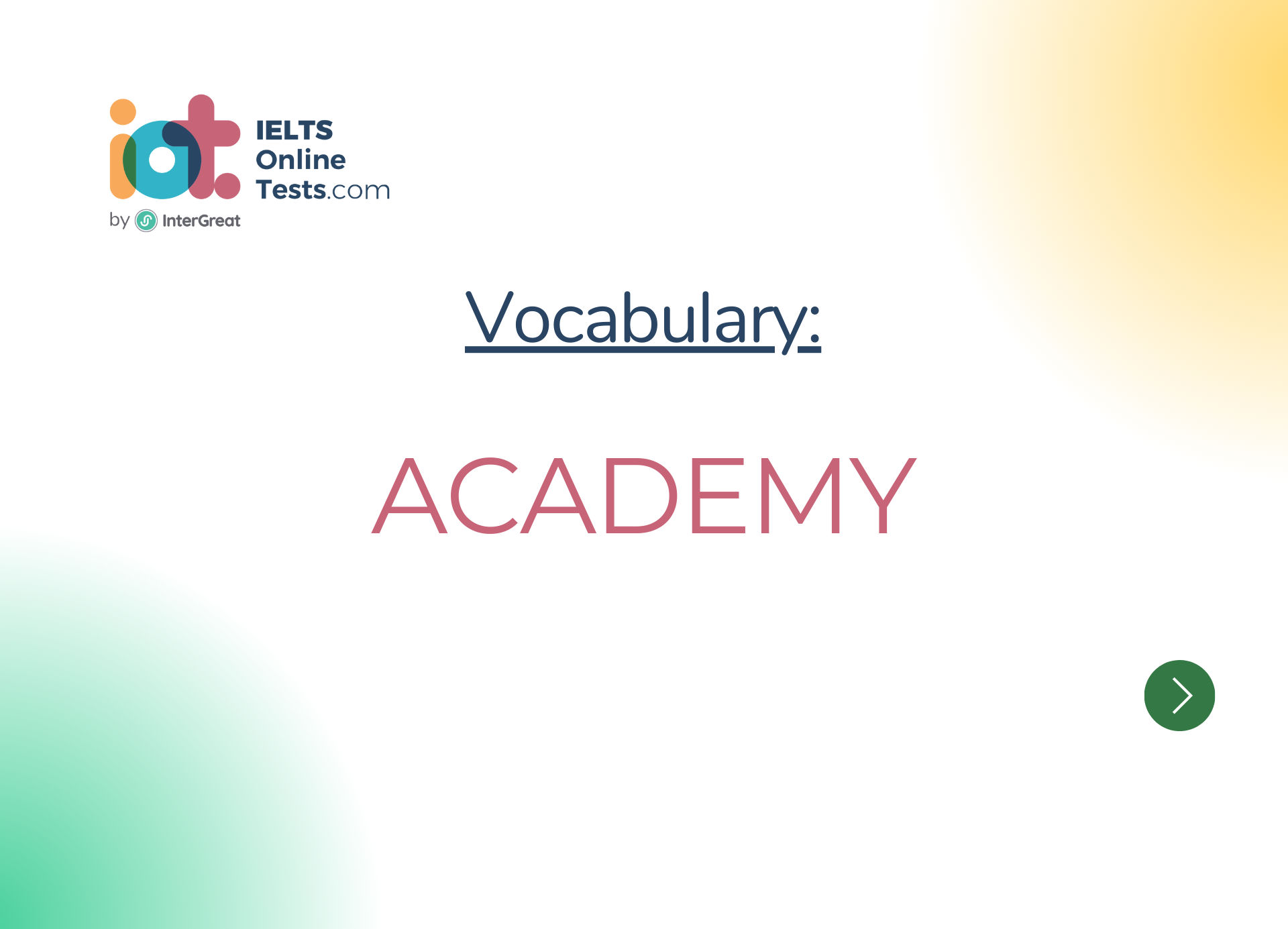
Academy
Here are some vocabulary words related to "Academy" in detail, suitable for the IELTS band score range of 4.5-6.0:
Academy: An institution of higher learning or specialized training, often focusing on specific subjects or fields of study.
Curriculum: The set of courses and subjects offered by an educational institution, outlining the content and learning objectives for each.
Academic excellence: The pursuit of high standards in education, characterized by outstanding performance and achievements.
Faculty: The teaching staff or professors of an academic institution responsible for delivering courses and conducting research.
Student body: The collective term for all the students enrolled in a particular school or university.
Degree: An academic qualification conferred upon successful completion of a program of study, such as a Bachelor's, Master's, or Doctoral degree.
Diploma: A document issued to a student upon completing a specific course or program, certifying their achievement.
Lecture: A formal educational presentation delivered by a teacher or professor to a group of students.
Seminar: A small group discussion or workshop led by an expert, allowing for in-depth exploration of a specific topic.
Research: The systematic investigation of a subject or issue, often leading to new knowledge or understanding.
Academic writing: The style of writing used in scholarly works, research papers, and academic publications.
Library: A collection of books, journals, and other resources for study and research purposes.
Graduation: The formal ceremony celebrating the completion of an academic program and the awarding of degrees or diplomas.
Extracurricular activities: Activities and clubs outside of regular coursework, providing students with additional learning opportunities and social engagement.
Academic calendar: The schedule of academic events, including start and end dates of semesters, holidays, and exam periods.
Academic advisor: A faculty member who provides guidance and support to students in their academic and career planning.
Plagiarism: The act of using someone else's work or ideas without giving proper credit, considered an academic offense.
Tuition fees: The cost of education charged by an academic institution for attending courses.
Academic achievement: The level of success and progress a student attains in their studies and academic performance.
Graduation requirements: The specific criteria and coursework that students must complete to be eligible for graduation.
Academic discipline: A specific branch of knowledge or field of study within an academic institution, such as mathematics, history, or biology.
Enroll: To officially register or sign up for a course or program of study at an academic institution.
Lecture hall: A large room or auditorium where lectures and presentations are conducted for a sizable group of students.
Campus: The grounds and buildings of an educational institution, including classrooms, libraries, and student facilities.
Research paper: An academic document that presents the findings of original research on a specific topic, typically written by students or researchers.
Thesis: A long, formal essay or dissertation presenting the author's research and findings, often required for a higher degree.
Academic journal: A periodical publication that contains scholarly articles and research papers written by experts in a particular field.
Academic integrity: Adhering to ethical principles and honesty in academic work, including citing sources properly and avoiding plagiarism.
Extracurricular achievements: Accomplishments and recognitions received through participation in extracurricular activities, such as sports, arts, or community service.
Academic probation: A period of close monitoring and evaluation for students whose academic performance has fallen below a certain standard.
Remember to practice using these vocabulary words in context to enhance your understanding and fluency. Engaging in conversations, reading academic materials, and writing essays with these terms will help you become more comfortable and proficient in using them accurately.




